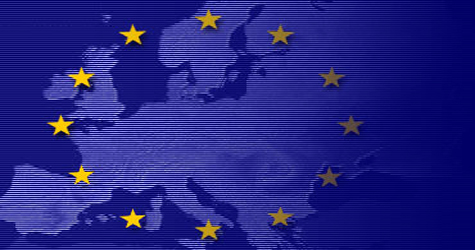The European Commission has adopted new rules on public support for projects in the field of environmental protection and energy.
The guidelines will support Member States in reaching their 2020 climate targets, while addressing the market distortions that may result from subsidies granted to renewable energy sources. To this end, the guidelines promote a gradual move to market-based support for renewable energy. They also provide criteria on how Member States can relieve energy intensive companies that are particularly exposed to international competition from charges levied for the support of renewables. Furthermore, the guidelines include new provisions on aid to energy infrastructure and generation capacity to strengthen the internal energy market and ensure security of supply (see alsoMEMO/14/276).
Commission Vice President in charge of competition policy Joaquín Almunia said: “It is time for renewables tojoin the market. The new guidelines provide a framework for designing more efficient public support measures that reflect market conditions, in a gradual and pragmatic way. Europe should meet its ambitious energy and climate targets at the least possible cost for taxpayers and without undue distortions of competition in the Single Market. This will contribute to making energy more affordable for European citizens and companies.”
The remarkable growth of renewable energy over recent years, partly induced by public support, has helped to make progress on environmental objectives but has also caused serious market distortions and increasing costs to consumers. The Commission has reflected this in the new guidelines, which will be valid from 1 July 2014 until the end of 2020.
Key features of the guidelines include:
-
Gradual introduction of market based mechanisms: Some renewable energy technologies have reached a stage of maturity that calls for their integration in the market. To increase cost effectiveness and limit distortions, the new guidelines foresee the gradual introduction of competitive bidding processes for allocating public support, while offering Member States flexibility to take account of national circumstances. A pilot phase in 2015 and 2016 will allow them to test competitive bidding procedures in a small share of their new electricity capacity. The guidelines also foresee the gradual replacement of feed-in tariffs by feed-in premiums, which expose renewable energy sources to market signals. Small installations will benefit from a special regime and can still be supported with feed-in tariffs or equivalent forms of support. Furthermore, the rules do not affect schemes already in place that were approved under the existing rules.
-
Promoting competitiveness of European industry: Charges levied for the funding of renewable energy support make up an increasing proportion of the energy bill for industry. This constitutes a very high burden for some energy intensive companies, in particular those exposed to strong international competition. The guidelines therefore allow reducing the burden for a limited number of energy intensive sectors defined for the whole EU. Member States will also be allowed to reduce the burden on highly energy intensive companies in other sectors.
-
Supporting cross-border energy infrastructure to further the Single European Energy Market: The new guidelines include criteria for supporting energy infrastructure, focusing on projects that improve cross-border energy flows and promote infrastructure in Europe’s less developed regions.
-
Another new feature is to permit aid to secure adequate electricity generation when there is a real risk of insufficient electricity generation capacity. This will allow Member States to introduce so-called “capacity mechanisms”, for example to encourage producers to build new generation capacity or prevent them from shutting down existing plants or to reward consumers to reduce electricity consumption in peak hours.
At the same time the Commission will also simplify procedures to implement certain aid measures in the field of environmental protection and energy. It is foreseen that several categories of environmental and energy aid measures will be included in the upcoming revision of the General Block Exemption Regulation(see IP/13/1281). This will make it easier and quicker for public authorities to implement such measures since they do not need to obtain prior approval by the Commission. Examples of these measures include certain forms of aid to promote of renewable energies or district heating, to clean up contaminated sites or to improve energy efficiency in buildings.
The guidelines are available here: http://ec.europa.eu/competition/sectors/energy/legislation_en.html
Background
The 2008 State aid Guidelines on Environmental Protection (see MEMO/08/31) included assessment criteria for state aid measures in 12 different areas, such as improving environmental performance beyond or in the absence of compulsory EU standards, supporting waste management activities, energy saving or remediation of contaminated sites.
During the six years of their application, a large part of expenditure assessed under the 2008 Guidelines has served to promote energy from renewable energy sources. Increasingly over the last years, state aid has also been granted for energy measures that fell outside the scope of the Guidelines, such as energy infrastructure or security of supply, for which the Guidelines did not include compatibility criteria. In the absence of specific criteria, such aid was examined by the Commission under the more general provisions on State aid established in Article 107 of the Treaty on the Functioning of the European Union (TFEU).
The adoption of the new guidelines was preceded by three public consultations of Member States and stakeholders, starting in July 2012. In December 2013 the Commission consulted the public on a draft (seeIP/13/1282). The adoption of the energy and environmental state aid guidelines is part of the Commission’s State Aid Modernisation agenda (see IP/12/458).











